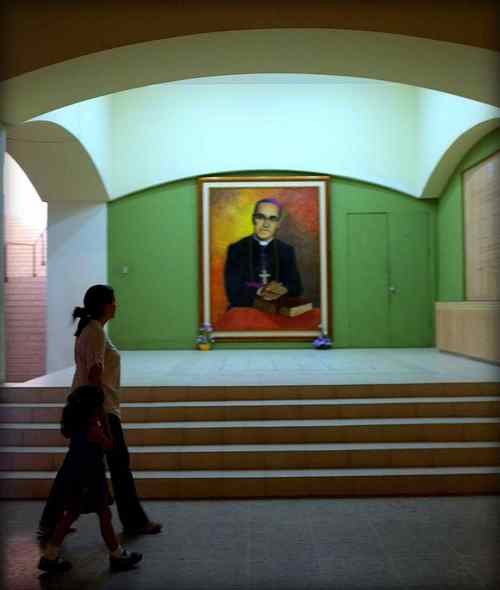As I watch recent events unfold in the Middle East where the aftermath of the Arab Spring has been plagued in Egypt by turmoil, assassinations and instability, I am reminded of Latin America's many stumbles towards democracy and the role of this generation in avoiding the same mistakes.
Indeed, our memories of the 70s and 80s post-dictatorship order are increasingly fresh, as a new generation of Latin Americans try to find through film the truth denied to them in text books.
Exactly 31 years ago a plane carrying Ecuador's first post-dictatorship President, Jaime Roldós Aguilera and his wife, crashed into the Hurairapungo mountain in the southern tip of the country. A tireless advocate for human rights and a fierce critic of the region's military dictatorships, Roldos's death less than two years into his mandate seemed to bring to an end the dream of a democratic and free Ecuador. Those of us who were born in the aftermath have lived with its consequences of that event without fixed memories or collective accounts of its roots.
To me, and many others my age, discussion on the events surrounding Jaime Roldós was often limited to 8th grade history exam memorization exercises. The few who were interested in pursuing truth were met with constant roadblocks and contradictory accounts. Just like García Marquez's fictional account of the massacre of banana workers in Macondo, all roads to truth seemed to intertwine in an endless labyrinth.
Compounding the difficulty in uncovering the truth has been the attitudes of our parents' generation, many of whom have spent the 1990s and 2000s trying to forget or deny the horrors and human rights violations that occurred in their own youth. Such has been the impact that in Ecuador my professional field, human rights, is often associated with a pejorative connotation, synonymous with trouble-making.
Now that an entire generation of Latin Americans born in the post-dictatorship period has come to adulthood we are beginning to re-instigate the debates left unresolved from the past.
Here in Ecuador, filmmakers Manolo Sarmiento and Lisandra Rivera released their ambitious documentary La Muerte de Jaime Roldós/The Death of Jaime Roldós, which explores the context, causes and aftermath of the historic event.
The film is the first effort of its kind to break this public and private silence by sharing intimate interviews with family members, public figures and a healthy stock of long lost archival material.
Not without controversy, the country's largest chain of theatres has refused to show the film, prompting a social media outcry and calls for a boycott driven by youth who are eager to discover the lost pages of their history books.
Ecuador is not alone this year in its efforts to explore its recent past truth film. Pablo Larraín's masterpiece film, NO! starring Gael Garcia Bernal, depicts events leading up to Chile's plebiscite to extend Gen Pinochet's mandate, the event that ultimately brought an end to Pinochet's violent regime. Much like La Muerte de Roldós, this film stirred new public debate in Chile concerning the need to move on, versus the need to not let go.
In addition, the documentary Granito: How to Nail a Dictator has brought a decades-old trial to life as a historical, transatlantic thriller with very real impact in Guatemala's search for accountability. The film has also coincided with the trial of former President Efrain Rios Montt for genocide, a charge for which he was convicted but that was later overturned.
Though no-one wants to pointlessly open old wounds, my young Salvadoran and Chilean colleagues agree that being born after the fact gives us a more distant perspective and an honest curiosity for understanding the events that have shaped our present. And without proper examination we are only perpetuating further injustice on the families of victims who, more than anything, wish for recognition for the high cost they have paid only to be left outside of official history.
In my own case, seeing La Muerte de Roldós made me realize the magnitude of the generational disconnect between those whose hopes and aspirations withered the day President Roldós died and those of us born in the aftermath. I had no idea, for example, of the efforts of those who were so hopeful and committed to democracy and human rights in Ecuador, or about how determined they were to exercise regional leadership on those fronts.
I left the film with a renewed empathy for those who struggled, persevered and then saw their efforts disappear in an instant. I gained a newfound understanding of where the general cynicism of our political culture comes from. In hearing the stories of those who lived through it, I ached to embrace and become closer to this lost generation of dreamers.
What is more, I have a newfound respect for those who have continued the fight, demonstrating remarkable resilience in the face of active cover-ups and complicit silence. Indeed, given our short attention spans, fast-changing career prospects and trend-seeking behaviours, my generation has a thing or two to learn about persistence in the face of seeming perpetual failure. Organizations such as Las Abuelas, Pedro José Restrepo, ProBusqueda are but a few testaments of what true resilience means.
The older generation of activists would also do well to realize that they no longer struggle just for their own healing. By inviting the young into the framing of their pursuits they can also but change the course of how our histories will be told to our great grand children - ideally with a concert of truth rather than a quiet whimper.

Salvadorean mother and daughter walk by the memorial to Archbishop Oscar Romero. Photo: Michelle Arevalo-Carpenter
